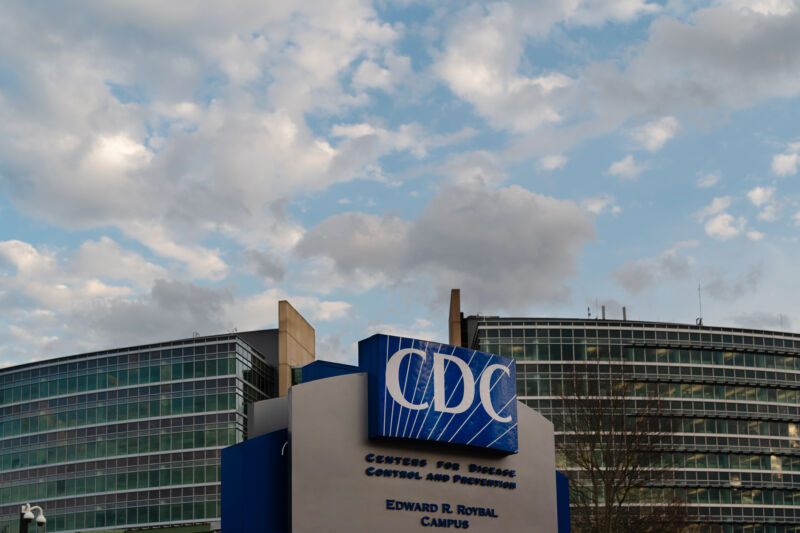
The Centers for Disease Control and Prevention on Tuesday recommended that everyone ages six months and older get an updated COVID-19 vaccine booster shot this fall or winter.
The recommendation came quickly on the heels of a meeting of CDC advisers who voted 13 to 1 strongly in favor of making the updated versions of mRNA COVID-19 vaccines available to everyone ages six months and older.
“The virus that causes COVID-19 is always changing, and protection from COVID-19 vaccines declines over time,” the CDC said in an announcement. “Receiving an updated COVID-19 vaccine can restore protection and provide enhanced protection against the variants currently responsible for most infections and hospitalizations in the United States.”
With the CDC’s signoff, the vaccines will now become available nationwide, possibly as early as Wednesday.
“We have more tools than ever to prevent the worst outcomes from COVID-19,” CDC Director Mandy Cohen said in a statement. “CDC is now recommending updated COVID-19 vaccination for everyone six months and older to better protect you and your loved ones.”
Fall campaign
Today’s move comes just a day after the Food and Drug Administration took actions on the vaccines, which included fully approving the updated mRNA vaccines from Pfizer-BioNTech and Moderna for everyone 12 years and up, and granting emergency authorizations for versions of the shots for children 6 months to 11 years old. All newly updated COVID-19 vaccines are monovalent, targeting the recent omicron subvariant, XBB.1.5.
The CDC’s Advisory Committee for Immunization Practices (ACIP) held an all-day meeting Tuesday to review all the data on efficacy, safety, cost-effectiveness, and equity related to COVID vaccines.
As Ars has reported previously, preliminary data suggests that updated versions of the vaccines are effective at boosting immune responses against the latest omicron subvariants, including EG.5 and the highly mutated BA.2.86. And safety data on COVID-19 vaccines, largely drawn from previous versions, continue to show good safety—with health benefits outweighing risks in all age groups.
The big question before ACIP members was whether to recommend that everyone get the vaccines, or to target recommendations to those most at risk, namely older people and those with underlying health conditions, especially immunocompromising conditions. If the committee had decided to issue a recommendation for only targeted groups, they would have considered it optional for everyone else. That would have meant it would be a shared decision between a lower-risk patient and their health care provider as to whether they should get the shot.
ACIP members strongly pushed back against this possibility. For one thing, the data continues to show that COVID risks extend to every group, not just those at the highest levels of risk. For instance, one CDC surveillance system found that of children (ages 17 and under) who died of COVID-19 in a hospital between January 2022 and June 2023, half had no underlying medical conditions.
Universal access
“There is no group that clearly has no risk from COVID,” Sandra Fryhofer, an ACIP liaison with the American Medical Association, said in a discussion section of today’s meeting. She urged the panel to recommend universal access, noting waning immunity from past infections and vaccinations and the evolution of new variants. “This new vaccine will help protect us from COVID.”
Beth Bell, an ACIP voting member and a clinical professor at the University of Washington, agreed. “It’s clear that vaccination is going to prevent serious illness and death across all age groups; it is a vaccine-preventable disease. So I, for that reason, favor universal recommendation,” she said. But, she also noted that there’s not equal risk across all ages and groups. “The messaging needs to clarify that and make clear that there is this differential risk and that a lot of people with underlying medical conditions and who are older are dying, and they really need to get a booster.”
Melinda Wharton, the CDC’s associate director for Vaccine Policy, chimed in to note that the agency is very mindful of this, but “targeted communications… can be done regardless of whether a recommendation is targeted or not.”
Additionally, multiple advisers noted that targeted recommendations will only add hurdles for those not clearly at high risk, which will exacerbate inequities in access. “I just do not feel that a shared decision-making recommendation promotes equity. I feel like it would lead to more disparities,” Sybil Cineas, an ACIP voting member and medical professor at Brown University, said as she voiced support for a universal recommendation.
The lone vote against universal access was from pediatrician Pablo Sánchez of The Ohio State University. He has a history of being the only dissenting vote on the committee; Last year, he was the only ACIP member to vote against use of bivalent booster vaccines. That year, like this year, he voiced concern that there isn’t enough data on the use of the updated vaccine in children. Though other members of the panel noted that there was a large volume of data overall on COVID-19 vaccines in children—all supporting safety and the benefits outweighing risks—and that the minor update to the vaccine is highly unlikely to alter that record, Sánchez was unmoved. He emphasized in the discussion after the vote that he was not against the vaccine.
“I just want to be clear that I am not against this vaccine, the data do look great—the limited data that are available,” Sánchez said.








